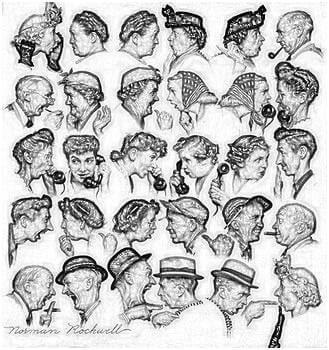我與Bill討論過 為了防止他的故事以"漏斗實驗規則四"方式散播
以下為正宗版本 請協助翻譯....
Chinese whispers
Meaning
Inaccurately transmitted gossip. 'Chinese
whispers' refers to a sequence of repetitions of a story, each one
differing slightly from the original, so that the final telling bears
only a scant resemblance to the original.
Origin
 The
expression 'Chinese whispers' is commonly used in the UK and many other
parts of the English-speaking world, although less so in the USA. It
derives from the party game in which one person whispers a message to
the person next to them and the story is then passed progressively to
several others, with inaccuracies accumulating as the game goes on. The
point of the game is the amusement obtained from the last player's
announcement of the story they heard, that typically being nothing like
the original. The game is played in all parts of the world and each
country has its own names for it, notably, in the USA it is usually
called 'Telephone' or 'Gossip'.
The
expression 'Chinese whispers' is commonly used in the UK and many other
parts of the English-speaking world, although less so in the USA. It
derives from the party game in which one person whispers a message to
the person next to them and the story is then passed progressively to
several others, with inaccuracies accumulating as the game goes on. The
point of the game is the amusement obtained from the last player's
announcement of the story they heard, that typically being nothing like
the original. The game is played in all parts of the world and each
country has its own names for it, notably, in the USA it is usually
called 'Telephone' or 'Gossip'.
The name 'Chinese Whispers' was adopted for the
game in the UK in the mid 20th century, prior to that it was known as
'Russian Scandal' or 'Russian Gossip'. The reason for the change isn't
clear. It is sometimes suggested that the phrase is a racial slur and is
intended to convey the idea that the Chinese talk nonsense. I see no
reason to assume that. The English aren't especially badly disposed
towards the Chinese - there are many other races on the UK hit list
above the Chinese. I think the decision by whoever coined the phrase had
more to do with the Chinese language being more incomprehensible to
English ears than Russian. If there is any racial stereotyping inherent
in the phrase it may be by an association with the idea that the Chinese
are inscrutable.
The first citation of the name in print is found in the English newspaper The Guardian, March 1964:
The children's game of 'Chinese whispers'... in which whispered messages were passed around the room and the version which came back to the starting point bore no relation to the original message.
The use in a more general sense, to describe
everyday misstelling of stories, began as recently as the 1980s. It
first started appearing in print and in online postings in Usenet
newsgroups in 1989. This was probably a consequence of the use of
'Chinese Whispers' as the name of a track on the 1985 album Stereotomy by The English rock group The Alan Parsons Project.
沒有留言:
張貼留言